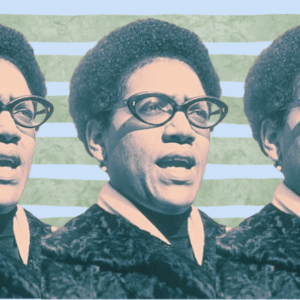
Peter Orner on the Pressure of Fiction’s Infinite Possibilities
In Conversation with Mitzi Rapkin on the First Draft Podcast
First Draft: A Dialogue of Writing is a weekly show featuring in-depth interviews with fiction, nonfiction, essay writers, and poets, highlighting the voices of writers as they discuss their work, their craft, and the literary arts. Hosted by Mitzi Rapkin, First Draft celebrates creative writing and the individuals who are dedicated to bringing their carefully chosen words to print as well as the impact writers have on the world we live in.
In this episode, Peter Orner joins Mitzi to discuss his book Maggie Brown and Others, out now from Back Bay Books.
From the episode:
Mitzi Rapkin: Something I sense in your stories is the sense of nostalgia paired alongside the ineffable. I don’t know if that makes sense to you, but your characters are often nostalgic for the past, or many of your stories have a jump forward in time where you see the future, or they’re taking place in childhood, or you’re in these moments that might be prosaic but somehow become sacred and and ineffable. Does that make sense to you? And what would you say about that?
Peter Orner: It makes sense. I find myself increasingly inarticulate because it is sometimes very hard to talk about this stuff, as you know, right? And so, yes, am I chasing something? Oftentimes are my characters chasing something or grasping at something from the past and inventing off of that? I think memory is invention in large measure. And so I’m often trying to put myself in the shoes of whatever character I’m working on and wondering what nags at them, and what nags at you. What image from the past and what vision from the past are you still chasing? I feel like that’s often what I’m after. It feels like an inarticulate articulation of it, but I hope it’s not.
Mitzi Rapkin: Is it important in fiction for them to catch that?
Peter Orner: I mean, in fiction, that is what’s so scary about it. Every move you make, there’s a counter move and then a counter move, and the possibilities are infinite, and they often freeze people up. It freezes me up. The possibilities become a kind of weight.
Mitzi Rapkin: Is it important for your character to solve their problems? So much of fiction is exploring the feeling and not the end result, which maybe isn’t as important.
Peter Orner: The end result is never what I’m after. Ever. It’s an old trope of fiction writers—we are always like, okay, let’s talk about Chekhov now. But I think about him a lot. And one of the things I often think about is how his stories do not end, you know? They don’t end. After that final period, there’s a kind of freefall that goes on, if they’re good. And most of his are pretty good. So that’s the goal, to have you not reach an end point and hopefully the story will continue to nag at you, bother you, upset you. Usually what frustrates people about my work is often there isn’t an answer or have something solved. People die. I guess that’s an answer.
***
Peter Orner’s fiction and non-fiction has appeared in the New York Times, the Atlantic Monthly, Granta, The Paris Review, The New Yorker, McSweeney’s, The Southern Review, Ploughshares and many other publications. Stories have been anthologized in Best American Stories and twice received a Pushcart Prize. Peter has been awarded the Rome Prize from the American Academy of Arts and Letters and the American Academy in Rome, a Guggenheim Fellowship, and a two-year Lannan Foundation Literary Fellowship. His fiction titles include Maggie Brown and Others, Esther Stores, Last Car Over the Sagamore Bridge, Love and Shame and Love, and The Second Coming of Mavala Shikongo. His non-fiction book is Am I Alone Here? He edited the titles Hope Deferred, Underground America, and Lavil: Life, Love and Death in Port-au-Prince.
First Draft: A Dialogue on Writing
First Draft: A Dialogue on Writing is a literary podcast produced and hosted by Mitzi Rapkin. Each episode features an in-depth interview with a fiction, non-fiction, essay, or poetry writer. The show is equal parts investigation into the craft of writing and conversation about the topics of an author’s work.



















